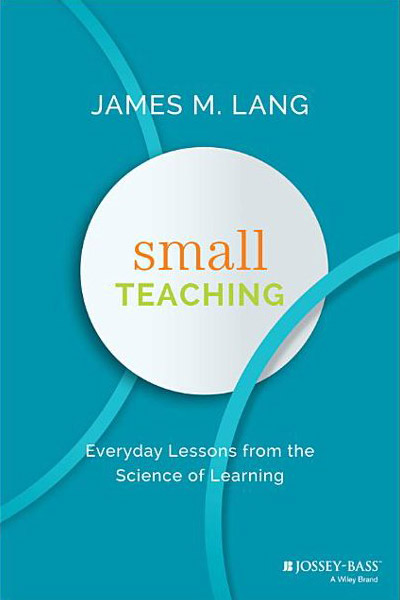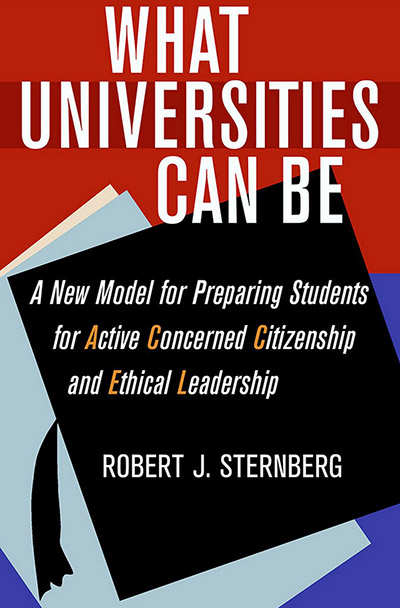Bringing Assignments Into Focus
Have you ever tried doing a project that you assign to your students? Or have you ever listed all of the steps—and all of the knowledge, skills, and resources needed for each of those steps—involved in completing a project that you assign?
If you haven’t tried either of those activities, doing so could be illuminating. Analyzing the projects we design (or adopt) often reveals that what we see as one assignment is actually made up of many, many tasks, and some may be more important, more time-consuming, or more level-appropriate than others.
For example, let’s take a traditional “term paper” assignment. Do you remember writing those when you were an undergraduate? Students are usually asked to craft their own academic argument supported by evidence from their research in accordance with disciplinary conventions. How many tasks are actually involved doing such a project? Fifteen? Fifty? More than that? And do students have the knowledge and skills they need to complete all of those tasks? If not, what opportunities will they have to gain that knowledge or develop those skillsduring the semester?
Perhaps an even more important question to ask is, what did the instructor hope that students would learn by writing that term paper? Did the goals have more to do with research? Like reading and analyzing primary sources, or finding and evaluating secondary sources? Or maybe using material from those sources as evidence to support their own claims? In which case, was the priority really more about students learning to make a coherent and compelling argument? And address counterarguments? Or was it more about nuts and bolts, like incorporating source material smoothly into their own writing? Or citing and documenting sources and avoiding plagiarism? Or organizing their writing in a way that will seem logical to a reader? Or editing and proofreading effectively as part of a multi-stage writing process? Or did the instructor instead want them to focus on applying a theory they learned about in the course? Or show some other knowledge of course concepts? Or is something else most important?
When we break them down, some projects might feel like asking students to juggle seven balls before they’ve learned to juggle three, or juggle three balls before they’ve learned to throw and catch. If you have a project that feels unwieldy (or even counterproductive), one option would be to go ahead and cut the assignment in half. Or in three parts. Or create a different assignment altogether, one that you think would be more inspiring or meaningful for students.
We design our assignments more intentionally by starting with our priorities for our students’ learning: What do I really want students to think about deeply and get better at through practice? How will they spend time on those priorities by doing this project? A project is a learning experience we design for our students.
Going back to the term paper example, let’s say you determine that what you really wanted was for students to get more practice doing research, specifically finding, reading, and analyzing sources, and maybe reflecting on how those sources influence their thinking about their research questions. Maybe they can write a narrative about their experience doing that research. Or they could write an annotated bibliography, a short literature review, an exploration, or a series of blog posts. You’re likely to find that there’s actually plenty to learn and plenty to do in a more focused project that is only a component of the more traditional version, which may turn out to have unintentionally prioritized breadth to the detriment of depth.
The more focused project might be well-aligned with the course goals and priorities, and work well as a stand-alone, or it might become the first in a sequence of assignments, through which students build toward a larger project in phases throughout the course. Just because a project is more focused, or less traditional, doesn’t mean it isn’t both level-appropriate and challenging. And in fact, we sometimes find that students do more of the learning we value most when we can clear away quite a few of the less relevant tasks. It helps us focus our feedback, too, so that we can let students know both where and how they succeeded, as well as some specific guidance for growth.
If you’d like support to break a large assignment into parts, or to design a more focused assignment from scratch, we’d be happy to help! You can email us to set up a consultation at pro-teaching@fsu.edu. We look forward to working with you!
Upcoming Events
Burnout: Teaching, Emotional Labor, and Exhaustion
Wednesday, October 6 | 4:00–5:00 p.m. on Zoom | Sign up to attend
Burnout has been rampant in academia during the pandemic. During this session, which will be part expert panel, part conversation and Q&A, we will discuss the chronic exhaustion and overwhelm many of us have reported experiencing while teaching during the last few semesters. Participants will have an opportunity to learn more about burnout, to share their experiences, and to ask questions of our panelists:
- Melissa Bolen, Clinical Coordinator of FSU’s Employee Assistance Program
- Robert Eklund, Associate Dean for Faculty Development and Advancement, College of Education
- Karen Oehme, Director of FSU’s Institute for Family Violence Studies and Research Associate in the College of Social Work
- Jeannine Turner, Associate Professor in the Department of Educational Psychology and Learning Systems
Fall Faculty Reading Groups
We still have a few spots left in these two reading groups Please register here.
Small Teaching: Everyday Lessons from the Science of Learning
 Thursdays: 10/14, 10/21, 10/28; 2:30–4:00 p.m. on Zoom | ebook
Thursdays: 10/14, 10/21, 10/28; 2:30–4:00 p.m. on Zoom | ebook
How do I get my students’ attention? How do I help them to go deeper, to make connections, and to feel empowered by their own learning? James Lang’s book explores the science of learning and shares with us small changes we can make that will have a powerful influence on our students’ learning. Join us as we discuss a variety of practical tools and techniques that can help us answer these and other teaching questions.
What Universities Can Be: A New Model for Preparing Students for Active Concerned Citizenship and Ethical Leadership
 Wednesdays: 10/20, 10/27, 11/3; 2:00–3:30 p.m. on Zoom | print book
Wednesdays: 10/20, 10/27, 11/3; 2:00–3:30 p.m. on Zoom | print book
Robert Sternberg thinks that universities can do a better job teaching things like wisdom, compassion, creativity, and practical thinking. If we’re preparing students to be leaders for the future, they’ll need all of these skills, and opportunities to practice making ethical decisions. This group will discuss strategies for realizing Sternberg’s ideas in our own classrooms.



